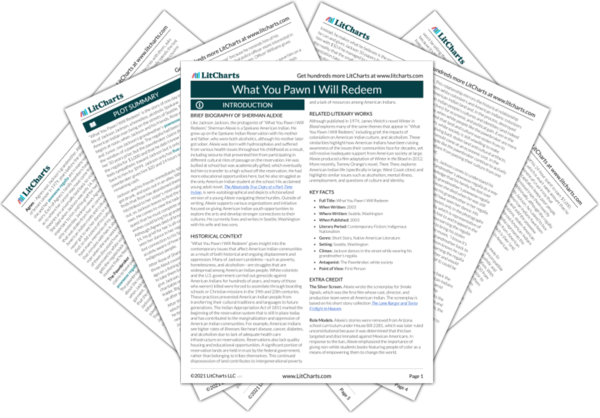The five-dollar bills that Jackson begins and ends his day with represent impoverished people’s hopeless position under capitalism. Jackson begins his quest at the pawnshop with five dollars, and when he returns a day later after attempting to raise $999 to buy his grandmother’s powwow regalia, he still only has five dollars. Although, importantly, it’s not the same five dollar bill that he originally started with. That he begins and ends with five dollars is a cruel irony that represents how capitalism traps poor people in an endless cycle of spending and earning with no real gains.
Jackson’s inability to save the money he earns for the regalia is a symptom of living in a capitalist society that tempts people with endless consumption. As quickly as a person earns money, capitalist society encourages them to spend it just as quickly—most often on necessities such as food or caring for others, which is where most of Jackson’s earnings go. Jackson starts and ends the story with almost nothing, and this reveals how capitalism prevents poor people from making progress financially.
The Five-Dollar Bills Quotes in What You Pawn I Will Redeem
I set the crumpled Lincoln on the countertop. The pawnbroker studied it.
“Is that the same five dollars from yesterday?”
“No, it’s different.”
He thought about the possibilities.
“Did you work hard for this money?” he asked.
“Yes,” I said.

Unlock explanations and citation info for this and every other What You Pawn I Will Redeem quote.
Plus so much more...
Get LitCharts A+









